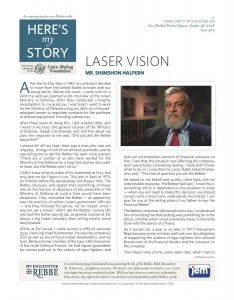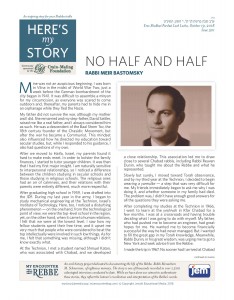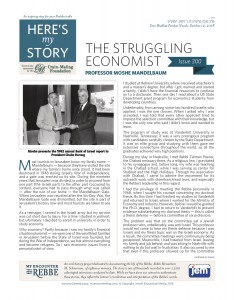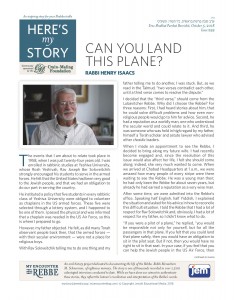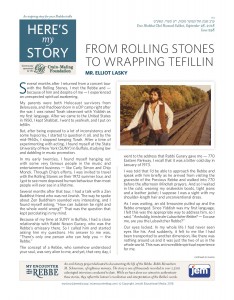Laser Vision
After the Six Day War, in 1967, my wife and I decided to move from the United States to Israel with our young family. Before the move, I came over on a pilot trip and was granted a job interview at the Israeli Ministry of Defense. After they conducted a lengthy investigation, to my great joy, I was hired. I went to work for the Ministry of Defense using my skills as a Harvard-educated lawyer to negotiate contracts for the purchase of defense equipment including submarines.
After three years of doing this, I got a better offer, and I went to my boss, the general counsel of the Ministry of Defense, Joseph Ciechanover, and told him about my plan. His response to me was, “Did you ask the Rebbe about this?”
I almost fell off my chair. Here was a man who was not religious, sitting in front of me without a yarmulke, and he was telling me to ask the Rebbe! He went on to explain, “There are a number of us who have worked for the Ministry of the Defense for a long time and we also want to leave, but the Rebbe won’t let us.”
I didn’t know what to make of his statement at first, and only later on did I figure it out. This was in April of 1973, six months before the devastating Yom Kippur War. The Rebbe obviously anticipated that something ominous was on the horizon. A departure of key personnel in the Ministry of Defense at such a time would have been disastrous. They consulted the Rebbe – as apparently was the practice of certain Israeli government officials – and they followed his advice. As for myself, since I was not yet a chasid, I didn’t ask the Rebbe; I simply left and took the better paying job, as general counsel at Etz Lavud, a big Israeli company then selling mostly wood and plywood.
While at Etz Lavud, I came across a difficult personal issue, involving Yosef Kremerman. He was the company’s CEO as well as one of the principal shareholders, and my boss. Being a former member of the Irgun (the forerunner of the Israel Defense Forces), he had signed guarantees for monies paid out to the widows of Irgun fighters, and that put a tremendous amount of financial pressure on him. I saw that this situation was affecting the company, and I was actually considering leaving. I really didn’t know what to do, so I consulted my uncle, Rabbi Leibel Kramer, who said, “This kind of question you ask the Rebbe.” (more…)


